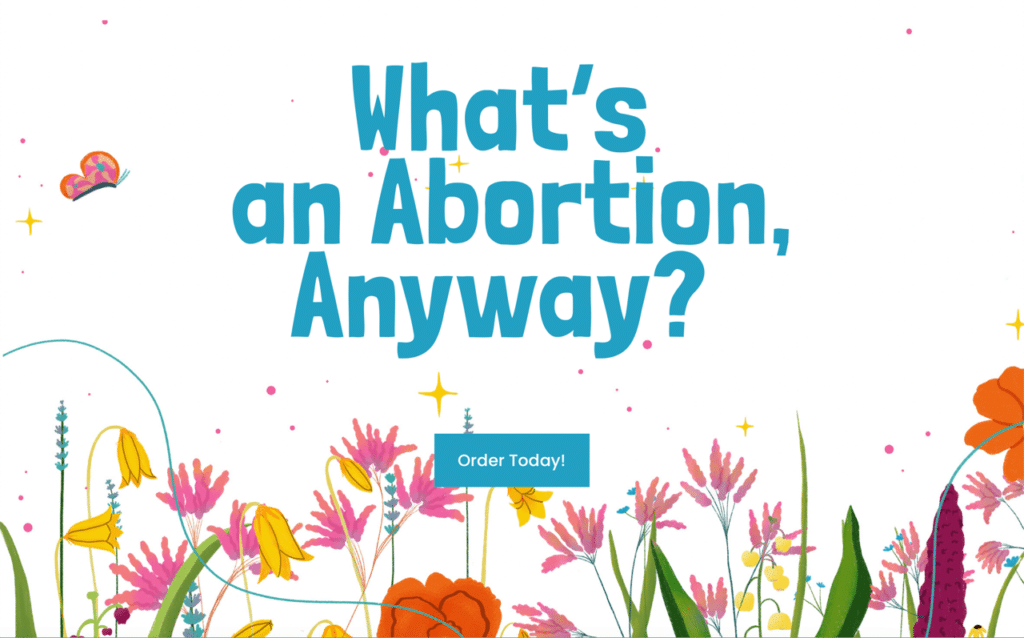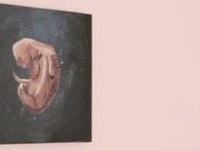“Abortion” for children
Gender Theory, another branch of the social justice paradigm, is starting to be implemented in schools. This theory is altogether on a level of magnitude more fact-resistant, irrational, emotive and potentially damaging than race theory.
I wrote about this in an article titled On another level: the dangers in Gender Theory on 16 May 2022.
Picture story
However, nothing prepared me for coming across a child’s picture story book for children under the age of 13.
It is titled What’s an Abortion, Anyway? The author describes it as a “Resource for young people who are curious about abortion or know someone who’s had one”.
The author assumes that children reading the book or having it read to them have a basic understanding of how pregnancy occurs; a rather naïve assumption.
The book has colourful, simple illustrations including a cute brown puppy-dog. It’s hard-cover, with a pretty front cover.

The back cover blurb states: ‘“What’s an Abortion, Anyway?” is a medically accurate, non-judgmental, and gender-inclusive resource for young folks about abortion care.
‘In this book, you’ll learn about what an abortion is, some of the reasons people have abortions, and a few of the ways people might feel about their abortions.’
The book shows that what it says is a gender-inclusive issue is, in fact, medically inaccurate.
The guide to parents on the inside cover states: ‘Abortion can be a difficult topic to broach among adults, let alone children. As abortion doulas, we know how important it is to ensure that everyone has the resources they need to have intentional, compassionate, and nonjudgmental conversations about abortion care with the young people in their lives. To our knowledge, there are currently no published books in the US that use the word “abortion” for children under the age of 13. Parents, caretakers, and providers need and deserve a nonjudgmental, gender-inclusive, and medically accurate resource to use in discussions with children about abortion.
‘Our intention is for this book to be a starting point – just one initial resource for parents, caretakers, and those wanting to talk to the young people in their lives about abortion care. As you’ll discover in the book’s text, the language used is devoid of gender or a traditional narrative arc due to the expansive, complex nature of abortion care. To use a traditional narrative arc would be to erase the millions of individual stories and reasons that people seek abortion care. It is important to us that this book does not perpetuate the ideology that there are “good” reasons or “bad” reasons to have an abortion.’
Doula
According to her biography the author, ‘Carly Manes (she/her)’ ‘is a white, queer, Jewish full-spectrum doula from New York. She has always believed that young people deserve transparency when it comes to information about their sexual health and bodies. Carly has been a practising abortion doula for over six years, supporting more than 2,000 individuals during their in-clinic procedures. She loves the beach, chicken tenders, and her communities. She lives with her partner Mo and their playful pitbull Mickey.’
A doula is a professional labour assistant who provides physical and emotional support to prospective parents during pregnancy, childbirth and the postpartum period. A doula is not a healthcare professional.
I had never heard of an abortion doula but apparently the “profession” does exist; not a bad idea in and of itself.
The illustrator ‘Mar (they/them),’ is a ‘brown genderqueer cultural worker and full-spectrum doula.’
The two, under the name Emulsify, create art that helps them ‘heal, learn, advocate, and imagine new worlds. They believe all art is powerful and political.’ Mar lives in Brooklyn with ‘their’ wife and spends ‘a lot of time creating while snuggling their pups’. Through ‘their’ work, M has made incredible friendships, learned from brilliant peers, and found ‘their’ home.’
It’s all very affirming and fluffy, but I don’t believe that something as potentially negatively life-changing as abortion is a matter for a deceptive-looking story book. Abortion falls within that greater subject of sex, and together with religion, should be entirely in the hands of the parents and discussed at a suitable age or in an appropriate set of circumstances.
The introduction for parents, who are going to read the book to children, notes that ‘Folk of all different gender identities get pregnant which means that folk have abortions.’ This is nonsense.
Honour everyone who has abortions
Manes says her aim is to honour everyone who has abortions and ‘challenges the mainstream cisgender assumptions that only women have abortions.’ As Prager U’s Will Witt says, ‘try to explain that sentence to a 5 year old!’
There you have the essence of the controversy about gender theory: identities other than biological women are ‘folk’ who ‘have abortions’. People have been cancelled, blocked, and lost jobs because they express the biological truth that women, and only women, are biological women.
Not according to the authors. They say: ‘When a person gets pregnant, some people have an abortion’.
‘An abortion is when someone decides to stop growing their pregnancy.’ Stop growing their pregnancy? As Charlie Brown would say: Good grief!
‘There are many different ways that people who are pregnant can have an abortion. Some people see a doctor who does a special procedure to remove the pregnancy from inside a person’s body. Other people take medicine to stop the pregnancy from growing bigger.
‘Abortions are very safe and millions of people have abortions every year all around the world.’
Let’s just have a look at that last flippant and ignorant remark.
World Health Organisation statistics show that 45% of induced abortions are unsafe. Some 13.2% of maternal deaths are due to unsafe abortions. The author obviously caters to an indulged, protected first-world audience; the trials and tribulations of the second and third worlds don’t enter her mind.
‘People have abortions for different reasons: some people have abortions because they like their family exactly as it is. Some have abortions because they can’t take care of a new baby right now. Some have abortions because doctors say pregnancy can make you sick. No matter the reason everyone should be able to make this decision for themselves.’
Roe v Wade generation
This reflects the attitude of a Roe v Wade generation, where the physical and emotional stresses of considering and then having an abortion are regarded as no more traumatic than a dose of ‘flu.
‘People have many different feelings before, during, and after their abortion. Some people want to talk about it and some don’t. Some people feel happy or calm. Some feel sad or lonely. Many people feel all these things at the same time. No matter how someone feels about their abortion they deserve to be treated with love and respect.
‘We can never really know what it is like to be someone else.’
Essentially they almost make abortion seem like a cool flip side of the pregnancy coin.
Abortion and the decision-making leading to it are usually extremely difficult and emotionally draining. While a partner, male or female, may be involved in the decision whether to have an abortion or not, only a woman (or girl) can have an abortion.
This is not an issue to discuss with a child unless a child asks about it, or is at an appropriate age to deal with and understand the issue. It is not subject matter for a child’s story book.
If you like what you have just read, support the Daily Friend

